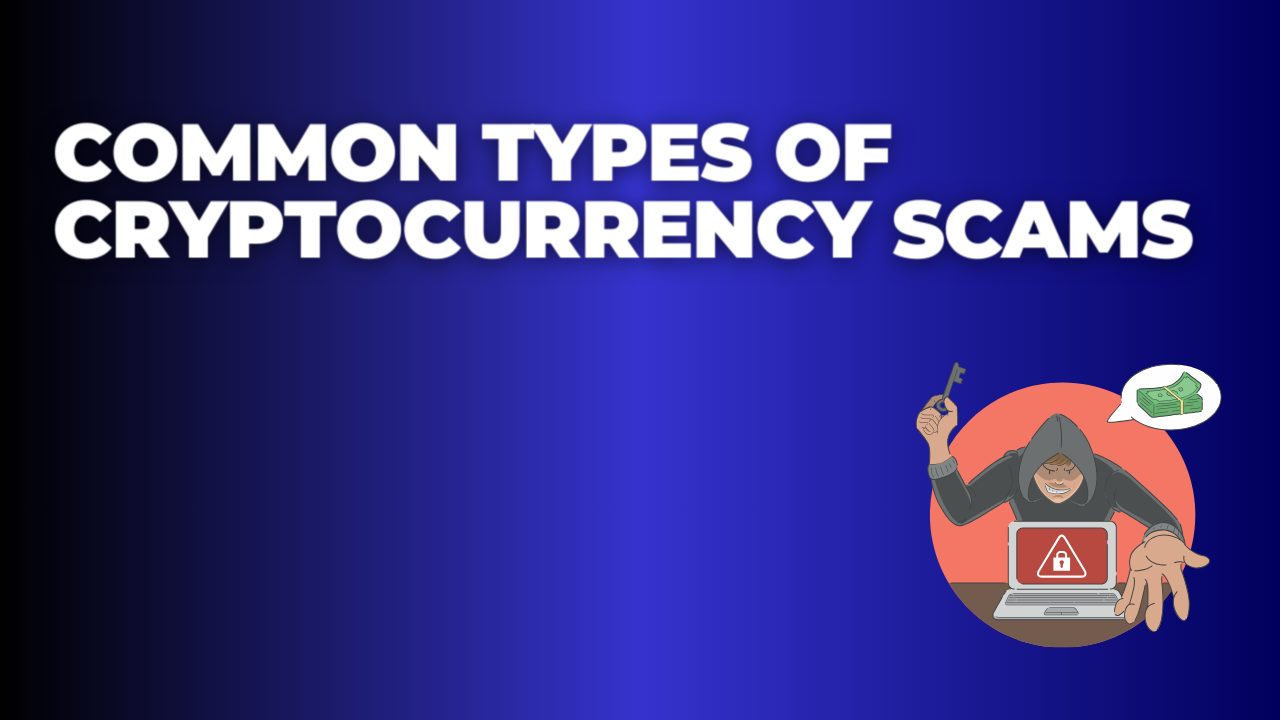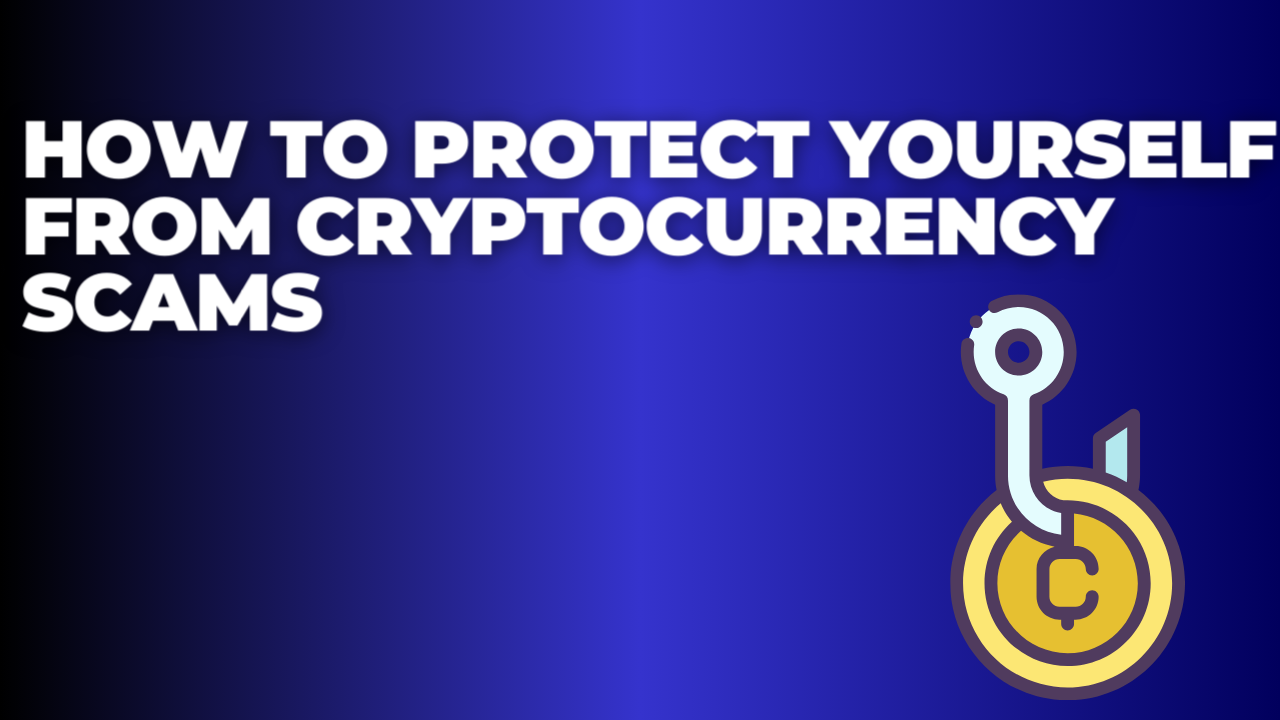Introduction
Discover how to protect yourself by understanding cryptocurrency scams. Learn the common tricks, warning signs and steps to avoid falling victim to digital fraud in the crypto world.
Cryptocurrency is one of the most revolutionary developments in modern finance, but it also comes with its share of risks—one of the biggest being scams. If you’re getting into the world of digital currencies, it’s essential to understand how cryptocurrency scams work and how to protect yourself from falling victim. In this blog post, we’ll break down the common types of crypto scams, explain how they operate, and provide tips to help you stay safe.
What Are Cryptocurrency Scams?
Cryptocurrency scams are fraudulent schemes designed to steal your digital assets or personal information. These scams have become increasingly sophisticated as the popularity of cryptocurrencies like Bitcoin, Ethereum, and others has surged. Scammers use various techniques to trick unsuspecting victims into sending them money or revealing sensitive details, leading to the loss of hard-earned funds.
Common Types of Cryptocurrency Scams
There are several different types of cryptocurrency scams you should be aware of. Understanding these scams is the first step toward protecting yourself.
-
Phishing Scams
Phishing is one of the most common online scams, and the world of crypto is no exception. In a phishing scam, attackers pose as legitimate companies or services (such as a cryptocurrency exchange) and trick you into providing your private keys, passwords, or other sensitive information. This is often done through fake emails or websites that look convincing but are designed to steal your details.
How to Avoid It: Always double-check URLs before entering sensitive information. Ensure that the website you’re visiting uses a secure connection (look for “https” in the URL), and never click on links from unsolicited emails or messages.
-
Fake ICOs (Initial Coin Offerings)
ICO scams are another widespread problem in the crypto world. Scammers create fake coins or tokens and promote them through flashy websites, promising massive returns for early investors. These ICOs often look legitimate but are designed to disappear with investors’ funds once they’ve raised enough money.
How to Avoid It: Before investing in an ICO, thoroughly research the project, its team, and its whitepaper. If the project lacks transparency or the returns seem too good to be true, it’s likely a scam.
-
Ponzi Schemes
Ponzi schemes in cryptocurrency involve fraudsters promising high returns to investors while using the money from new investors to pay off earlier ones. Eventually, the scheme collapses when there aren’t enough new investors to cover the payouts, and the scammer runs off with the remaining funds.
How to Avoid It: Be cautious of any investment promising guaranteed returns, especially if the profits seem unusually high. Real investments always carry some risk, and guaranteed returns are often a red flag for a Ponzi scheme.
-
Fake Exchanges
In some cases, scammers create fake cryptocurrency exchanges that appear to offer better rates or lower fees. However, these exchanges are just traps set to steal your funds when you attempt to deposit or trade your cryptocurrency.
How to Avoid It: Stick to well-established and reputable cryptocurrency exchanges. Do your research and read reviews before using any platform to ensure that it is legitimate.
-
Social Media Scams
Scammers often take to social media platforms, impersonating well-known figures in the crypto space and offering giveaways or investments that promise free crypto. These scams usually ask you to send a small amount of cryptocurrency to “verify” your wallet or to be eligible for the giveaway, but once you send the money, it’s gone for good.
How to Avoid It: Legitimate giveaways never require you to send cryptocurrency first. Be cautious of any offers that seem too good to be true on social media, and verify the authenticity of the account.
How to Protect Yourself from Cryptocurrency Scams
While cryptocurrency scams are widespread, there are several steps you can take to safeguard your assets.
- Use Strong Security Measures: Always use two-factor authentication (2FA) on your crypto accounts. This provides an additional layer of security by needing a second step for verification, often a code sent to your phone, along with your password.
- Secure Your Private Keys: Think of your private keys as the key to your cryptocurrency, similar to a password.Never share them with anyone, and store them securely in an offline location, such as a hardware wallet, rather than on an exchange.
- Be Skeptical of Offers: If an investment opportunity sounds too good to be true, it probably is. Do thorough research before committing to any project, and be wary of unsolicited offers promising high returns.
- Verify All Information: Whether you receive an email, a social media message, or a phone call, always verify the information before taking any action. Double-check the legitimacy of the person or company you’re dealing with by contacting them directly through official channels.
- Educate Yourself: Staying informed is one of the best ways to protect yourself. By understanding how different scams work, you’ll be better equipped to spot them before they happen.
What to Do If You’re Scammed
If you believe you’ve fallen victim to a cryptocurrency scam, it’s important to act quickly:
- Report the Scam: Notify the cryptocurrency exchange, wallet provider, or platform where the scam took place. In some cases, they may be able to help you recover your funds.
- Contact Authorities: Report the scam to law enforcement or your local cybercrime unit. In some countries, there are specific agencies dedicated to handling cryptocurrency fraud.
- Inform Others: Sharing your experience can prevent others from falling into the same scam. Use online forums, social media, or local news outlets to spread the word about common scams.
Conclusion
Cryptocurrency scams are an unfortunate reality in today’s digital age, but by understanding how they work and taking the right precautions, you can protect yourself from becoming a victim. Always stay vigilant, use secure methods to store your crypto, and never invest in anything that seems too good to be true. As long as you approach the crypto world with caution and awareness, you can enjoy the benefits of this exciting financial frontier while minimizing the risks.


